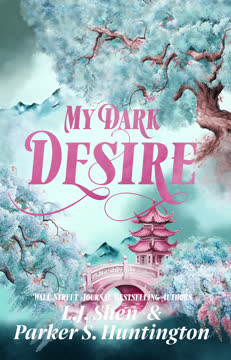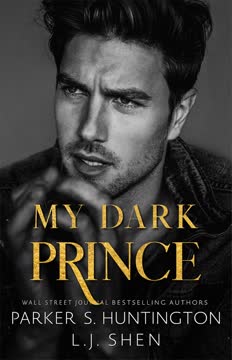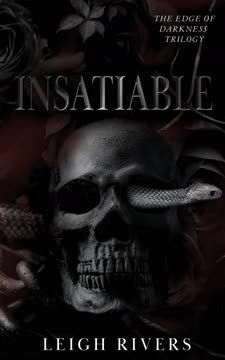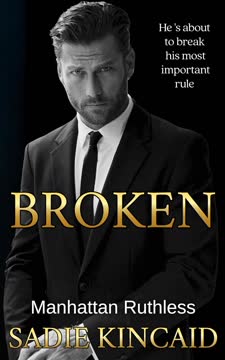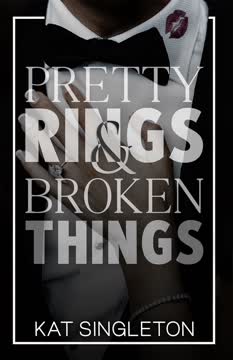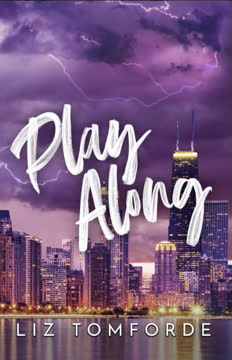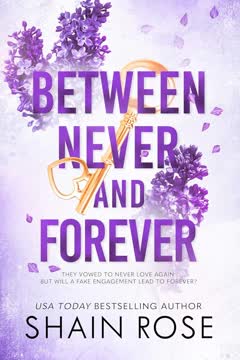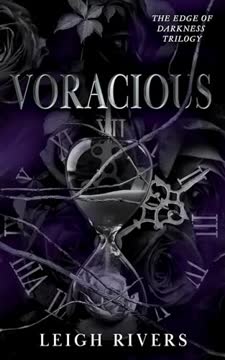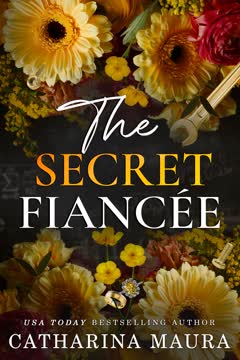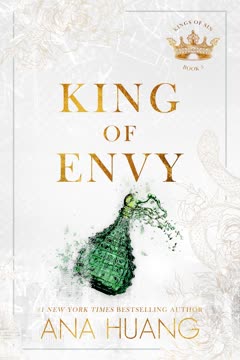Plot Summary
A Thief Meets Her Match
Farrow Ballantine, orphaned and scraping by as the unwanted stepdaughter in a crumbling family, breaks into the mansion of Zachary Sun, Potomac's coldest billionaire, to steal back her late father's jade pendant. Instead of escaping, she's caught by Zach himself—a man as beautiful as he is ruthless. Their confrontation is electric, laced with wit and challenge. Rather than turn her in, Zach offers her a deal: work for him as his housekeeper to pay off her attempted theft. Farrow, proud and cornered, accepts, setting the stage for a battle of wills. Both are drawn to each other's intelligence and defiance, but neither is willing to show vulnerability. The first sparks of their dark, forbidden connection ignite.
The Game of Go
Zach and Farrow's relationship is defined by their ongoing Go game—a metaphor for their power struggle and mutual fascination. Each move is a test, a flirtation, a way to reveal and conceal. Farrow's sharp wit and Zach's icy intellect clash and intertwine, drawing them closer. Their games become a safe space for honesty, where secrets slip out between strategies. The Go board is where Zach first feels alive since his father's death, and where Farrow finds someone who sees her as more than a servant. The tension between them grows, both sexual and emotional, as they circle each other, neither willing to surrender.
A Deal with the Devil
Zach formalizes Farrow's employment, binding her to his world and his rules. He's determined to teach her a lesson for her audacity, but also to keep her close. Farrow negotiates fiercely, demanding legal help to fight her stepmother for her father's legacy. Their arrangement is transactional on the surface, but charged with unspoken longing. Zach's need for control is matched by Farrow's refusal to be tamed. As she becomes indispensable in his home, their boundaries blur. The deal is a cage and a lifeline, forcing them into daily proximity and deeper entanglement.
Touching the Untouchable
Zach's trauma runs deep—he cannot bear human touch, haunted by the memory of his father's death as he shielded Zach in a car crash. Farrow, with her own scars, becomes the exception. Slowly, through accidental brushes and intentional challenges, she helps him reclaim his body and his senses. Their first real touch is electric, a breakthrough that leaves them both shaken. For Zach, it's a miracle; for Farrow, a responsibility. Their intimacy grows, not just physically but emotionally, as they begin to trust each other with their pain. The act of touching becomes an act of love and defiance against their pasts.
The Prince's Bride Hunt
Zach's mother, Constance, is determined to see him married, orchestrating a parade of eligible women and a lavish bride hunt. The pressure mounts as Zach is pushed toward Eileen, a woman who seems perfect on paper but leaves him cold. Farrow, always on the outside, watches the spectacle with cynicism, but can't help feeling the sting of jealousy. The contrast between the soulless rituals of the elite and the raw, messy connection she shares with Zach becomes stark. Both are forced to confront what they truly want: a life dictated by duty, or one chosen for love.
The Pendant's True Worth
The jade pendant, once belonging to Farrow's father, becomes the story's emotional anchor. It represents everything Farrow has lost—her family, her security, her sense of belonging. Zach, who initially keeps it as a trophy, comes to understand its significance. The pendant's journey mirrors Farrow's: stolen, caged, and finally reclaimed. When Zach returns it to her, it's not just an act of restitution, but a declaration of love. The pendant is no longer just a relic of the past, but a promise for the future.
Fencing with Fate
Farrow's identity as a fencer is both her pride and her curse. Training with the legendary Andras, she dreams of the Olympics, but her past mistakes and present scandals threaten to destroy her career. Fencing becomes a metaphor for her struggle: every bout is a fight for survival, every loss a reminder of her vulnerability. Zach, too, learns to fence, seeking discipline and connection. Their matches are charged with sexual tension and mutual respect. When Farrow is forced to choose between her dream and her quest for justice, she must decide what kind of fighter she wants to be.
The Housekeeper's Heart
As Farrow settles into her role in Zach's house, she transforms the cold mansion into a home. Her presence brings warmth, chaos, and life. She befriends the staff, challenges Zach's routines, and leaves her mark on every room. For Zach, who has lived in emotional winter since his father's death, Farrow is a revelation. Their domestic moments—shared meals, late-night conversations, stolen kisses—become the foundation of their love. Both realize that home is not a place, but a person.
Secrets, Lies, and Scandals
Farrow's stepmother, Vera, is revealed to be more than just cruel—she's criminal. With the help of Zach's legal team, Farrow uncovers the truth about her father's death: Vera orchestrated it for insurance money. The revelation is shattering, forcing Farrow to confront her anger, grief, and guilt. Meanwhile, Zach's engagement to Eileen unravels as her own deceptions come to light. The web of lies that has trapped them both begins to tear, but not without cost. Their reputations, dreams, and even their safety are at stake.
The Cost of Survival
Both Zach and Farrow are forced to reckon with the price of survival. Zach must choose between his mother's approval and his own happiness, finally breaking free from her control. Farrow, having won her legal battle, realizes that victory is hollow without healing. She decides to take a month apart from Zach, needing to find herself outside of their relationship. The separation is agonizing, but necessary. Each must learn to stand alone before they can stand together.
Breaking the Chains
During their month apart, both grow in unexpected ways. Farrow finds a new home, a new career as a coach, and a sense of self-worth independent of Zach or her family. Zach, stripped of his defenses, confronts his trauma and learns to live—and love—without fear. Their friends and found family rally around them, offering support and comic relief. When they finally reunite, it's as equals, ready to build a life together on their own terms.
The Truth About Family
The story's climax is not just about romantic love, but about the meaning of family. Farrow, once abandoned and betrayed, finds a tribe in Zach, Dallas, Romeo, and their circle. Zach, once isolated by grief and guilt, learns to forgive himself and open his heart. Together, they create a new kind of family—one chosen, not inherited. The past is not erased, but transformed into the foundation of something stronger.
The Fall of Vera
Vera's crimes are exposed, and she is brought to justice. Farrow confronts her stepmother and her own anger, finally letting go of the need for revenge. The house that was once a prison becomes a symbol of freedom. Zach's mother, too, is forced to reckon with her own fears and control, ultimately accepting Farrow as her daughter-in-law. The old wounds are not forgotten, but they no longer define the future.
A Month Without You
The month apart is a crucible for both Zach and Farrow. They ache for each other, but resist the urge to reunite too soon. Each faces their own demons: Zach tracks down Eileen to end the engagement, while Farrow builds a new life and learns to forgive her father. Their longing is palpable, but so is their determination to be whole on their own. When the countdown ends, they are ready to choose each other freely.
The Key to Home
Zach leaves Farrow a key to his secret art gallery, where he has collected and restored all her father's lost treasures. The gesture is more than romantic—it's redemptive. Farrow, overwhelmed by the depth of his love, realizes that home is not a place or a collection of things, but the person who would move heaven and earth for her. The key is both literal and symbolic: the door to their shared life.
The Grand Gesture
Zach, never one for displays, makes a grand, public proposal at a fencing competition, declaring his love for Farrow before the world. The moment is messy, awkward, and utterly perfect. Farrow, surrounded by friends and family, says yes. The shoe that started it all becomes the ring, the symbol of their journey from adversaries to soulmates. Their love is no longer a secret, but a celebration.
Love in the Open
Marriage is not the end, but the beginning. Zach and Farrow navigate the challenges of blending their lives, families, and quirks. They fight, make up, and grow together. Their home is filled with laughter, chaos, and love. The scars of the past remain, but they are no longer wounds—they are reminders of how far they've come. Together, they are stronger, braver, and more alive than they ever were apart.
Happily Ever After
The story closes with Zach and Farrow surrounded by their chosen family, welcoming new life and new adventures. Their love, once forbidden and fraught, is now open and unashamed. They have rewritten their own fairy tale—not as prince and princess, but as equals, partners, and best friends. The pendant, the Go board, and the house are no longer symbols of loss, but of hope. Their dark desires have become the light that guides them home.
Characters
Farrow Ballantine
Farrow is a fiercely intelligent, resourceful woman who has survived abandonment, abuse, and betrayal. Raised as the unwanted stepdaughter, she's learned to rely on herself, using wit and grit to carve out a place in a world that wants to erase her. Her love for her late father and her longing for belonging drive her actions, from stealing the pendant to fighting for her inheritance. Farrow's journey is one of self-discovery: she must learn to forgive, to trust, and to accept love. Her relationship with Zach is both a battle and a balm, forcing her to confront her own fears and desires. Through her, the novel explores themes of resilience, vulnerability, and the true meaning of home.
Zachary Sun
Zach is a man frozen by trauma, unable to touch or be touched since witnessing his father's death. Outwardly cold, calculating, and ruthless, he hides a deep well of pain and longing. His obsession with control is both a shield and a prison. Farrow's arrival shatters his carefully constructed world, forcing him to confront his fears and open himself to love. Zach's arc is one of healing: through Farrow, he learns to feel, to risk, and to hope. His journey is marked by guilt, self-loathing, and the slow, painful process of forgiveness. Ultimately, he becomes not just Farrow's savior, but his own.
Vera Ballantine
Vera is the antagonist, driven by greed, resentment, and a desperate need for security. Her cruelty toward Farrow is rooted in her own trauma and sense of inadequacy. Vera's actions—culminating in the murder of Farrow's father—are monstrous, but the novel offers glimpses of her humanity. She is a cautionary figure, showing what happens when pain is left to fester and infect. Her downfall is both justice and tragedy, forcing Farrow to confront the cycle of hurt and the possibility of breaking free.
Constance Sun
Zach's mother is a formidable force, determined to protect her son at any cost. Her obsession with safety and appearances masks a deep, unhealed grief. Constance's attempts to orchestrate Zach's life are both loving and suffocating. Her arc is one of letting go: she must learn to trust Zach, to accept Farrow, and to seek her own healing. Her relationship with Farrow evolves from antagonism to acceptance, mirroring the novel's themes of chosen family and forgiveness.
Eileen Yang
Eileen is Zach's mother's choice for a bride: accomplished, elegant, and seemingly ideal. Beneath the surface, she is as lost and lonely as Zach and Farrow, molding herself to fit others' expectations. Her engagement to Zach is a performance, a bid for security and validation. Eileen's arc is one of self-realization: she must confront her own lies and let go of a love that was never truly hers. Her rivalry with Farrow is both poignant and painful, highlighting the dangers of living for others.
Andras Horvath
Andras is Farrow's fencing coach, a legend in the sport and a father figure. His support is conditional, however, and his own secrets—most notably his connection to Vera and the murder of Farrow's father—make him both ally and enemy. Andras represents the complexity of loyalty and the cost of survival. His downfall is a turning point for Farrow, forcing her to choose between vengeance and healing.
Dallas Costa
Dallas is the heart of the found family that surrounds Farrow and Zach. Warm, loyal, and unfiltered, she offers unconditional support and much-needed levity. Her own journey—from outsider to wife and mother—parallels Farrow's, showing the power of chosen family. Dallas's friendship is a lifeline for Farrow, reminding her that she is worthy of love and belonging.
Romeo Costa
Romeo, Dallas's husband and Zach's friend, is a reformed bad boy who has found redemption in love. His relationship with Dallas is passionate, chaotic, and real—a counterpoint to the cold, transactional unions of the elite. Romeo's loyalty to Zach and Farrow is unwavering, and his willingness to fight for happiness inspires those around him.
Oliver von Bismarck
Oliver is the wild card: a notorious playboy who hides his intelligence behind a mask of frivolity. His antics provide humor, but his loyalty to Zach is fierce. Oliver's refusal to conform is both a shield and a statement, challenging the expectations of their world. He is the friend who pushes, provokes, and ultimately supports Zach's journey to love.
Anna (Farrow's student)
Anna is the young fencer Farrow coaches after leaving competition. Her eagerness, talent, and trust in Farrow represent the next generation and the possibility of breaking cycles. Through Anna, Farrow finds purpose beyond her own pain, passing on her hard-won wisdom and reclaiming her love for the sport.
Plot Devices
The Go Game
The ongoing Go game between Zach and Farrow is the novel's central motif. Each move is a negotiation of power, a flirtation, and a confession. The game's rules—simple yet infinite—mirror the complexity of their relationship. As the game progresses, so does their intimacy, with each surrender and victory marking a step toward vulnerability. The Go board becomes a space where they can be honest, challenge each other, and ultimately choose each other. The final move, and the prize of the pendant, is both an ending and a beginning.
The Jade Pendant
The pendant is more than a MacGuffin—it is the story's emotional core. Its theft, loss, and eventual return chart the arc of Farrow's journey from grief to healing. For Zach, giving it back is an act of love and humility, a way to right old wrongs and offer himself fully. The pendant's history—crafted for star-crossed lovers—echoes the novel's themes of fate, sacrifice, and reunion.
Dual Narration and Textual Play
The story alternates between Zach and Farrow's points of view, offering insight into their inner worlds and the misunderstandings that keep them apart. Interspersed are text messages, group chats, and emails, grounding the story in contemporary life and providing humor, tension, and character depth. These devices allow for dramatic irony, foreshadowing, and the slow reveal of secrets.
Found Family and Chosen Home
The novel subverts the traditional fairy tale by centering not on blood ties, but on the family we choose. Farrow's journey from outcast to beloved friend, coach, and partner is mirrored by Zach's evolution from isolated heir to loving husband and friend. Their circle—Dallas, Romeo, Oliver, and others—offers support, laughter, and a model of imperfect, enduring love. The house, once a symbol of loneliness, becomes a home through shared effort and affection.
Trauma, Healing, and Touch
Zach's inability to touch is both a literal and figurative barrier. Farrow's patience, courage, and empathy help him reclaim his body and his heart. Their slow, sometimes painful progress is rendered with sensitivity and realism, showing that healing is not linear. The act of touch—once a source of pain—becomes a language of love, trust, and hope.
Analysis
My Dark Desire is a modern, subversive fairy tale that explores the collision of trauma, power, and love in a world obsessed with appearances and control. At its heart, the novel is about two broken people who find in each other not just passion, but the courage to heal and hope. Through sharp dialogue, layered symbolism, and a cast of vividly drawn characters, the story interrogates what it means to belong, to forgive, and to choose one's own destiny. The Go game, the pendant, and the motif of touch all serve as metaphors for the risks and rewards of intimacy. The novel refuses easy answers: love is messy, healing is slow, and family is what we make it. Ultimately, My Dark Desire argues that true strength lies not in perfection or power, but in vulnerability, resilience, and the willingness to fight for joy—even, and especially, when the world says we don't deserve it.
Last updated:
Review Summary
My Dark Desire receives mixed reviews, with many praising its humor, character development, and addictive writing style. Readers appreciate the unique virgin hero and his journey overcoming touch aversion. The Cinderella retelling aspect and the chemistry between Zach and Farrow are highlights. However, some criticize its length, excessive drama, and occasional cringe-worthy moments. The book's spicy scenes and possessive hero appeal to many, while others find certain plot elements frustrating. Overall, it's a polarizing read that has garnered both passionate fans and detractors.
